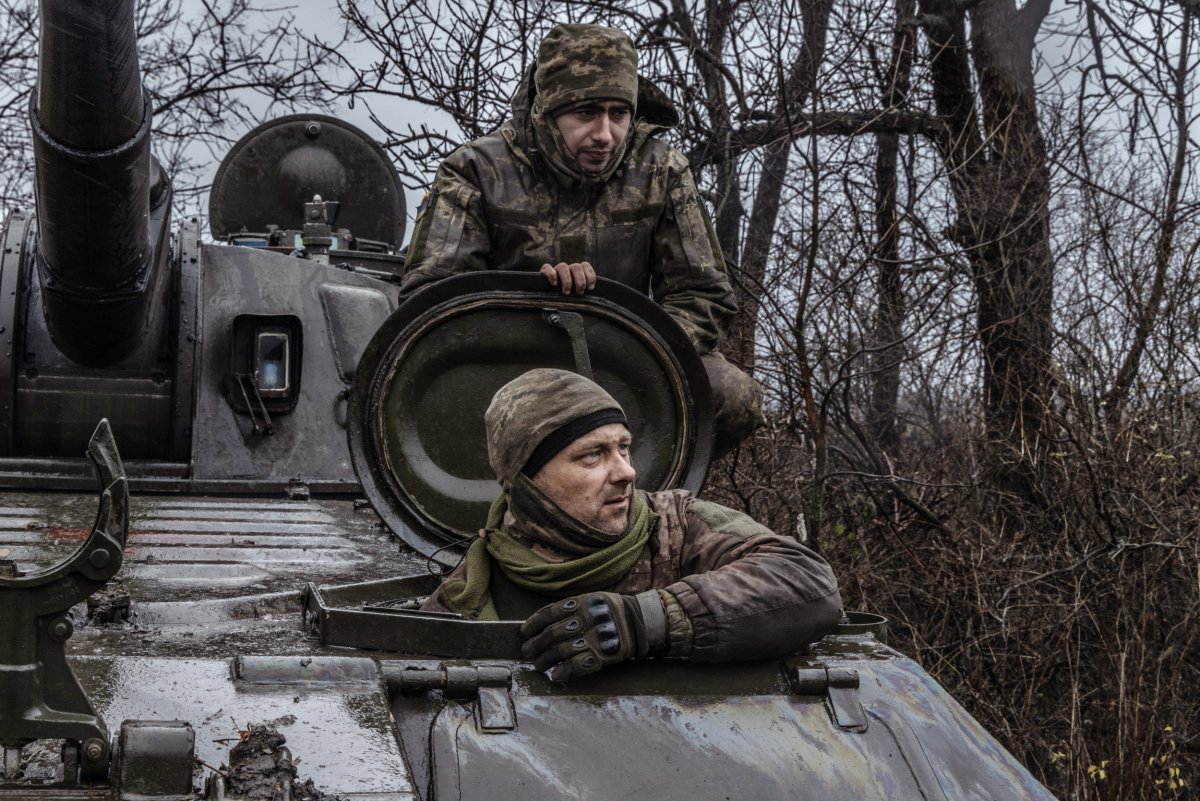A guest on Russian state TV recently admitted he believes the Kremlin's effort in Ukraine has "failed completely," and there was no backup plan to fall on.
Anton Gerashchenko, an adviser to the Minister of Internal Affairs of Ukraine, tweeted on Friday a clip of the video, providing translations. The video has been viewed more than 60,000 times as of Friday morning.
Russia invaded Ukraine on February 24, 2022, as part of a "special military operation." The operation quickly evolved into war, and after nearly a year, the fighting continues. Various places around Ukraine have faced the front lines of battle, and attention has shifted to the Bakhmut region as the Wagner Group, a Russian paramilitary organization, attempt to seize the city. Meanwhile, advancement on both sides has stalled during the winter months, but experts expect fighting to pick up again once spring nears.
On a Russian state TV talk show, political analyst Viktor Olevich said Russia's attempt to quickly gain control of Ukraine was unsuccessful.

"If our intelligence is so effective, then why did the plan for the special military operation fail completely?" he asked during the show's segment. "And there was no plan B at all. Does this indicate that our intelligence is effective or very ineffective?"
Center for Strategic and International Studies (CSIS) senior adviser, Mark Cancian, told Newsweek on Friday that Olevich's assessment is correct in that Russia expected to gain control of Ukraine in the first 48 hours of the war. However, he doesn't agree that Russia's approach has been a complete failure.
Cancian added that Moscow may not have had a plan B when first initiating the "special military operation," but soon developed one.
According to Cancian, Russia controls about 18 percent of Ukraine, and has made gains in the war that it's hanging on to.
"I wouldn't say it's a complete failure because Russians are still occupying territory, but it's not the success they thought it would be," he told Newsweek. "Both sides have been adaptive."
Olevich has previously voiced his concern about Russia's approach to the war. In December, he participated in a televised panel and said that Russia couldn't stop Ukrainian attacks. Other panelists disagreed with him, however Olevich held firm in his stance.
Roughly a month later, he appeared on Russian state TV again, and said that Moscow wasn't making any notable advances in the war. In the most recent video, the TV host tries to interrupt Olevich, who continues with his statements.
"I wonder what we will hear next?" Gerashchenko tweeted with the video.
Gerashchenko's followers responded to the video, with many of them saying they expected the Kremlin to target Olevich for his polarizing statements about Russia.
"Special military operation failed completely, and there was no plan B at all" - propagandists started saying.
— Anton Gerashchenko (@Gerashchenko_en) February 3, 2023
I wonder what we will hear next? pic.twitter.com/9IUjktVNHk
As the war nears its one-year mark, military experts are voicing predictions on what Russia's and Ukraine's next actions will be. Ukraine's forces have been bolstered by various weapons and equipment from Western allies, with soldiers training on Patriot missile systems from the United States last month. Several allied nations have also agreed to send heavier equipment to Ukraine to aid in its fighting, such as Abrams tanks from the U.S. and Leopard tanks from Germany.
Russia evoked a partial military mobilization last September to add up to 300,000 members to its troops. Meanwhile, some experts expect Russia to continue its offensive in Bakhmut while launching a northern offensive to attempt to regain control of Kharkiv as winter nears its end.
Update 2/3/2023, 4:45 p.m. ET: This article has been updated with comment from Mark Cancian.
Uncommon Knowledge
Newsweek is committed to challenging conventional wisdom and finding connections in the search for common ground.
Newsweek is committed to challenging conventional wisdom and finding connections in the search for common ground.
About the writer
Anna Skinner is a Newsweek senior reporter based in Indianapolis. Her focus is reporting on the climate, environment and weather ... Read more
To read how Newsweek uses AI as a newsroom tool, Click here.








